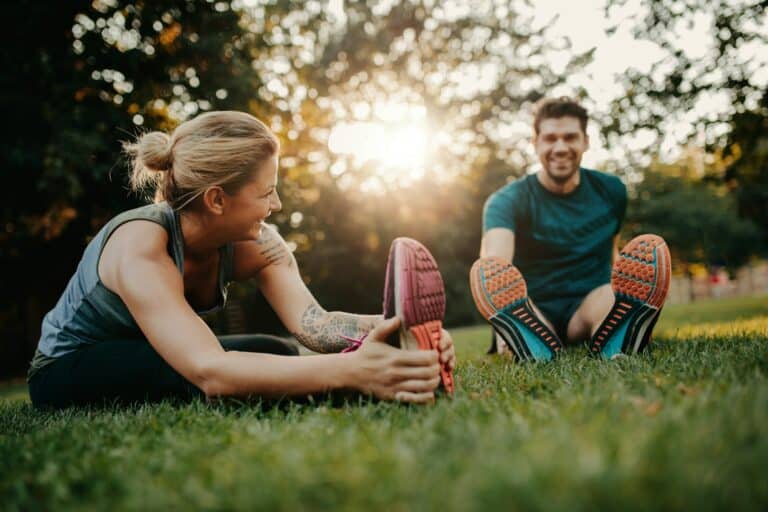Yuichiro Miura climbed Mt. Everest at the age of 80. Gladys Burrill finished a marathon at 92, and she isn’t even the oldest person to traverse the 26.2 mile course. That record belongs to Fauja Singh who completed his last marathon at 101 years old. Singh started doing marathons at the comparatively tender age of 89. The take away? Don’t let myths about exercising in middle age get in your way. If they can do it – keep moving, challenge themselves physically and set high fitness goals – so can you.
If any of the following so-called facts are getting in your way, forget about them. None of them are true. You can be a lean, mean fitness machine at 17, 57 and even 87. Like Nike says, Just Do It!
You can’t set a personal record in middle age, so why bother?
Peter Sagal, host of the NPR quiz show Wait, Wait, Don’t Tell Me, is a middle aged runner. Anxious to dispel the myth that performance always declines with age, Sagal set out to beat his best marathon finish time. He tweaked his training and finished 11 minutes faster at 46 than he had at 41. Not bad, right? So why not get in the game? Maybe you won’t win the race, but you may win your age group. You will definitely win against your sedentary self because any exercise always beats couch sitting.
You have to stretch before exercise to avoid injury
 Numerous studies have now concluded that it is more important to warm up after you exercise. Stretching cold, stiff muscles may increase your chance of injury and has not been shown to improve performance. A better strategy would be to go a little slower at the outset – a few easy laps in the pool, slow cycling before you hit racing speed or walking/jogging before you start running.
Numerous studies have now concluded that it is more important to warm up after you exercise. Stretching cold, stiff muscles may increase your chance of injury and has not been shown to improve performance. A better strategy would be to go a little slower at the outset – a few easy laps in the pool, slow cycling before you hit racing speed or walking/jogging before you start running.
It is too late for me to get started or to compete
It is never too late to start exercising. Think again about Fauja Singh, who completed his first marathon at 89. The key is to compete against yourself, don’t compare yourself to anyone else. If you have always imagined yourself as a champion, consider trying out for the Senior Olympics. Participants can be as young as 50 years old.
More is always better
Don’t get stuck here. Even if you only have a few minutes to spare remember that some exercise is always better than no exercise. If you haven’t exercised before, don’t try to catch up for a life time. Set reasonable goals and have fun.
Weight gain is inevitable
Middle age doesn’t have to mean more weight. One of the benefits of exercise is the boost it gives your muscle mass and metabolism. Both are key factors for maintaining a healthy weight. If you want to avoid middle age spread you can, but you have to exercise.
Exercise is only good for my body
 Exercise is also great for your brain. Just two hours each week have been shown to improve memory and cognition in middle aged adults. Exercise can also improve mood and help you sleep better.
Exercise is also great for your brain. Just two hours each week have been shown to improve memory and cognition in middle aged adults. Exercise can also improve mood and help you sleep better.
No pain, no gain
Sure, you want to challenge yourself but you don’t want to get hurt. Injuries are among the most common reasons fitness plans get derailed. Don’t overdo it. Build up your activity levels as you increase strength and stamina. If you experience pain, pull back and remember RICE (rest, ice, compression, elevation) to speed your recovery.
There has never been a more exciting to be in middle age. Advances in healthcare and technology, as well as changing cultural attitudes mean more vibrant middle years. Stay in the game with exercise.


